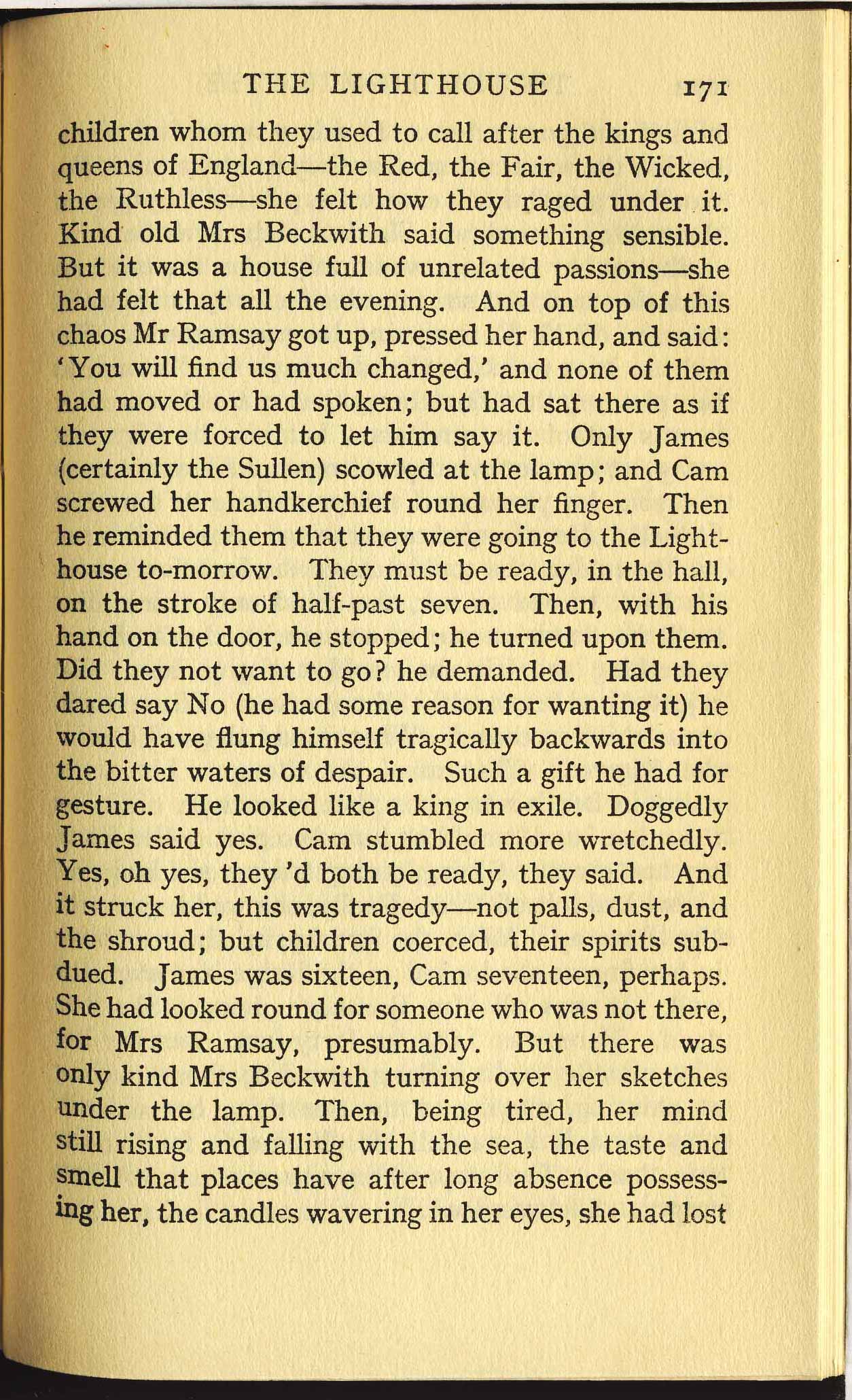
THE LIGHTHOUSE 171children whom they used to call after the kings andqueens of EnglandŌĆöthe Red, the Fair, the Wicked,the RuthlessŌĆöshe felt how they raged under it.Kind old Mrs Beckwith said something sensible.But it was a house full of unrelated passionsŌĆöshehad felt that all the evening. And on top of thischaos Mr Ramsay got up, pressed her hand, and said:ŌĆśYou will find us much changed,' and none of themhad moved or had spoken; but had sat there as ifthey were forced to let him say it. Only James(certainly the Sullen) scowled at the lamp; and Camscrewed her handkerchief round her finger. Thenhe reminded them that they were going to the Light-house to-morrow. They must be ready, in the hall,on the stroke of half-past seven. Then, with hishand on the door, he stopped; he turned upon them.Did they not want to go? he demanded. Had theydared say No (he had some reason for wanting it) hewould have flung himself tragically backwards intothe bitter waters of despair. Such a gift he had forgesture. He looked like a king in exile. DoggedlyJames said yes. Cam stumbled more wretchedly.Yes, oh yes, they'd both be ready, they said. Andit struck her, this was tragedyŌĆönot palls, dust, andthe shroud; but children coerced, their spirits sub-dued. James was sixteen, Cam seventeen, perhaps.She had looked round for someone who was not there,for Mrs Ramsay, presumably. But there wasonly kind Mrs Beckwith turning over her sketchesunder the lamp. Then, being tired, her mindstill rising and falling with the sea, the taste andsmell that places have after long absence possess-ing her, the candles wavering in her eyes, she had lost









